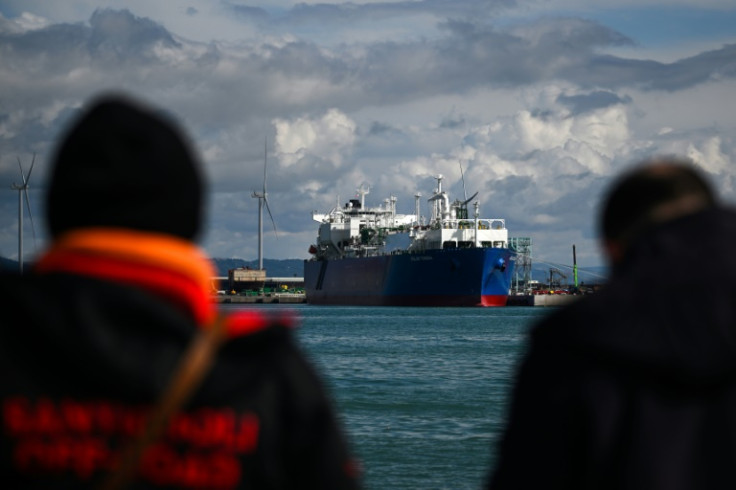
The EU is considering expanding its sanctions against Moscow over the war in Ukraine to target Russia's liquefied natural gas sector, EU diplomats said Wednesday.
The aim is to further hit Russia's revenues from fossil fuels as there have been growing concerns that previous sanctions have not hurt as much as the EU wishes.
EU ambassadors discussed the LNG proposal during a meeting Wednesday but an EU diplomat said the talks were still in the early stages.
The EU has already unleashed 13 rounds of unprecedented sanctions against Russia since its 2022 invasion of Ukraine, many of which target its key oil and gas exports.
The latest proposal by the European Commission contains "elements on ship-to-ship transfers of LNG", another EU diplomat told AFP.
This would entail a ban on ports in the European Union re-exporting Russian LNG to third countries outside the bloc, but the diplomat said EU states could still import the fuel.
"This provision does not affect imports into the EU," a document seen by AFP also said.
European ports matter for Russia since the continent offers shorter transport routes for certain Russian LNG tankers, according to experts.
Ports in Belgium, France, The Netherlands and Spain are the main points for LNG deliveries from Russia's Siberian Yamal Peninsula, said the German environmental organisation, Urgewald.
The Belgian port of Zeebrugge and the French port of Montoir are especially important hubs for re-exports to countries such as China, Taiwan or Turkey, its study said in March.
The proposal also seeks to prohibit any EU involvement in new Russian LNG projects.
"Such a measure limits the expansion of Russia's LNG capacity and thereby limits Russia's revenues," the document dated May 3 explained.
EU countries paid 8.2 billion euros ($8.8 billion) for Russian LNG in 2023, according to an April report by the Centre for Research on Energy and Clean Air.
Brussels is also considering extending sanctions to more Chinese entities accused of supplying Russia with military technology, a diplomat said, without giving details.
Since the discussions are still in the early stages, they could be subject to change as the EU's 27 member states hammer out a final agreement on the package.
After reports came out about the LNG plans this week, Hungary expressed its scepticism.







